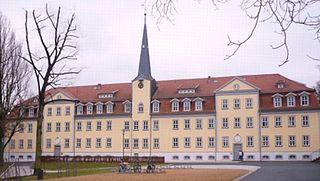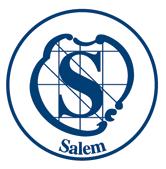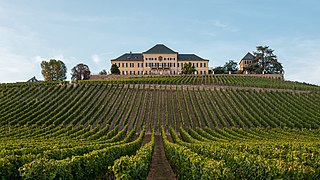
Education in the Netherlands is characterized by division: education is oriented toward the needs and background of the pupil. Education is divided over schools for different age groups, some of which are divided in streams for different educational levels. Schools are furthermore divided in public, special (religious), and general-special (neutral) schools, although there are also a few private schools. The Dutch grading scale runs from 1 to 10 (outstanding).

Gymnasium is a term in various European languages for a secondary school that prepares students for higher education at a university. It is comparable to the US English term preparatory high school or the British term grammar school. Before the 20th century, the gymnasium system was a widespread feature of educational systems throughout many European countries.

Education in Sweden is mandatory for children between ages 5/6 and 15/16 depending on when in the year they were born. The school year in Sweden runs from mid–late August to early/mid–June. The Christmas holiday from mid–December to early January divides the Swedish school year into two terms.

Education in Germany is primarily the responsibility of individual German states, with the federal government only playing a minor role.

Secondary education is the last six or seven years of statutory formal education in the United States. It culminates with twelfth grade. Whether it begins with sixth grade or seventh grade varies by state and sometimes by school district.
Eleventh grade is the eleventh year of formal or compulsory education. It is typically the third year of high school. Students in eleventh grade are usually 16–17 years of age.

The Schnepfenthal Institution is a boarding school in the district of Gotha, Germany, founded in 1784.
University admission or college admission is the process through which students enter tertiary education at universities and colleges. Systems vary widely from country to country, and sometimes from institution to institution.

Schule Schloss Salem is a boarding school with campuses in Salem and Überlingen in Baden-Württemberg, Southern Germany.

Gymnasium, in the German education system, is the most advanced and highest of the three types of German secondary schools, the others being Hauptschule (lowest) and Realschule (middle). Gymnasium strongly emphasizes academic learning, comparable to the British grammar school system or with prep schools in the United States. A student attending Gymnasium is called a Gymnasiast. In 2009/10 there were 3,094 gymnasia in Germany, with c. 2,475,000 students, resulting in an average student number of 800 students per school.

Schulpforta, otherwise known as Pforta, is a school located in Pforta monastery, a former Cistercian monastery (1137–1540). The school is located near Naumburg on the Saale River in the German state of Saxony-Anhalt.

Oestrich-Winkel is a town with roughly 12,000 inhabitants in the Rheingau-Taunus-Kreis in the Regierungsbezirk of Darmstadt in Hesse, Germany.

Geisenheim is a town in the Rheingau-Taunus-Kreis in the Regierungsbezirk of Darmstadt in Hessen, Germany, and is known as Weinstadt, Schulstadt, Domstadt and Lindenstadt.

Schloss Johannisberg is a castle and winery in the village of Johannisberg to the west of Wiesbaden, Hesse, in the Rheingau wine-growing region of Germany. It has been making wine for over 900 years. The winery is most noted for its claim to have "discovered" late harvest wine. The palace is a venue of the Rheingau Musik Festival, made available by co-founder Tatiana von Metternich-Winneburg.

Sächsisches Landesgymnasium Sankt Afra zu Meißen is a boarding school for highly gifted students in the German city of Meissen, Saxony. Founded in 1543 as Fürstliche Landesschule and re-established in 2001, the stated aim of the school is to promote the intellectual and social development of highly gifted students. The costs for attending the school comply with the maxim of social balance; the boarding and schooling fees are considerably low in contrast to similar institutions. It is the first publicly funded school for highly gifted students in Germany and is a role model for similar schools.
The A-level is a main school leaving qualification of the General Certificate of Education in England, Wales, Northern Ireland, the Channel Islands and the Isle of Man. It is available as an alternative qualification in other countries, where it is similarly known as an A-Level.

The Landesgymnasium für Hochbegabte in Schwäbisch Gmünd is a co-educational public Boarding school for highly gifted students founded by the state of Baden-Württemberg. It is the first and sole school of this kind in this state. The Landesgymnasium für Hochbegabte is a publicly funded school in Germany for highly gifted students, similar to the Landesschule Pforta in Saxony-Anhalt, the Landesgymnasium St. Afra in Saxony and Internatsschule Schloss Hansenberg in Hesse. It is funded by the city of Schwäbisch Gmünd, the district Ostalbkreis and the state of Baden-Württemberg. Its stated aim is the promotion of the intellectual and social development of its students.

Institut auf dem Rosenberg, often referred to as Rosenberg, is a private, family-run, international boarding school located in St. Gallen, Switzerland. Established in 1889 by Ulrich Schmidt, Rosenberg was originally known as Institut Dr Schmidt and gained its current name after being acquired by the Gademann family in 1944.

Roman Twardy is a German teacher, academic lecturer and the conductor of the Wiesbadener Knabenchor boys' choir in Wiesbaden, Hesse, Germany. The choir appears internationally and has made recordings. From 2019, Twardy is also interim conductor of the church choir Chor von St. Bonifatius in Wiesbaden.

















